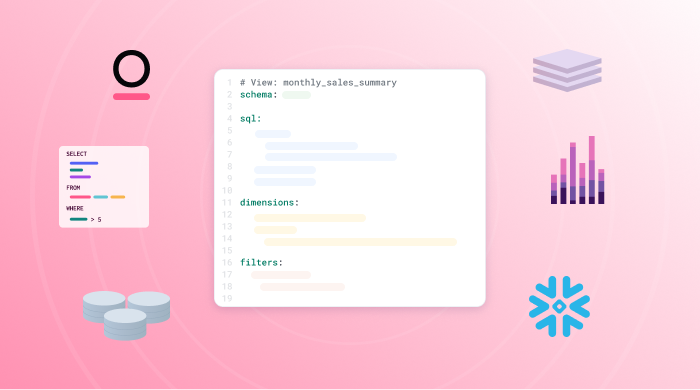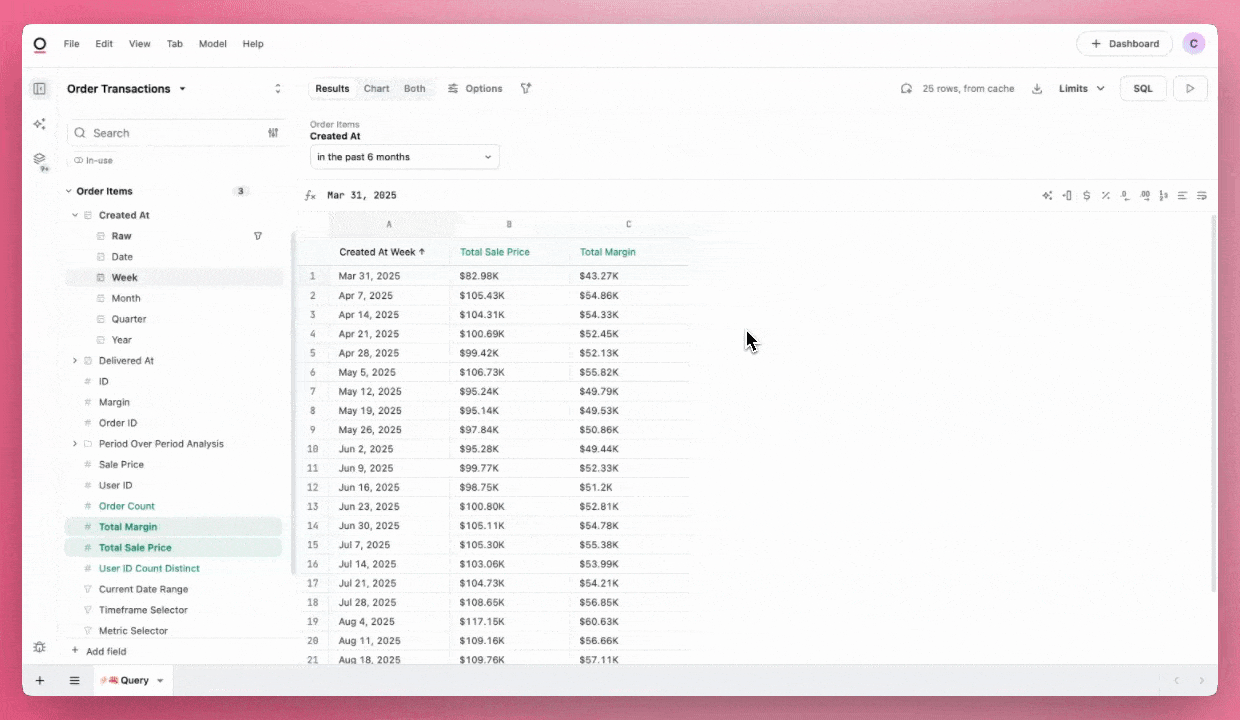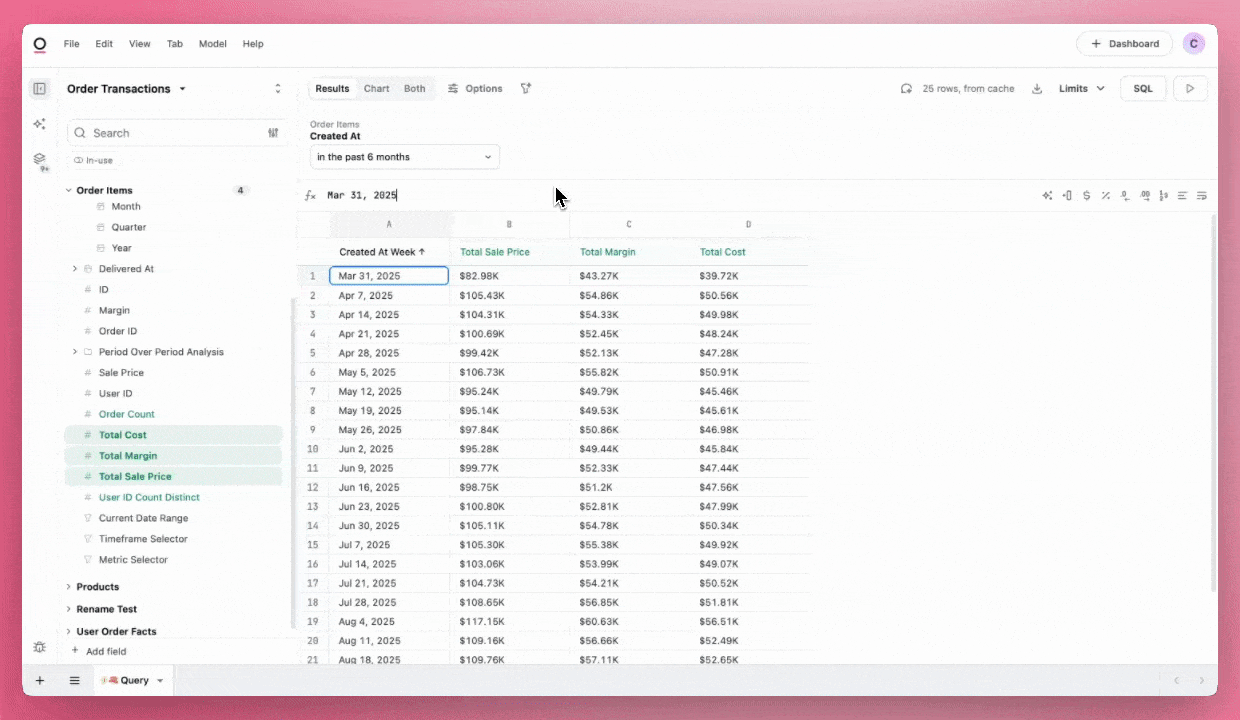
As data teams turn to AI to improve self-service, engage customers, and speed up workflows, it’s never been more important to create shared business logic and context between humans and AI.
That’s the value of the semantic model — and it’s why we’ve believed in it since day one.
Now, that value gets stronger with the launch of the Open Semantic Interchange (OSI) — an open-source initiative led by Snowflake and other industry leaders, defining a vendor-neutral standard for semantic models. Omni is proud to join OSI as an early contributor to shape a future where business logic is portable, consistent, and accessible across the modern data stack.
With OSI, business logic can move freely across tools, making collaboration easier and giving data teams flexibility.
Why OSI matters #
Whether you’re asking a question in natural language, building a dashboard, or developing a data product, the quality of the answer depends on the logic underneath. Too often those definitions live in different places — notebooks, docs, various tools, and even individuals’ heads. Things get messy fast.
OSI introduces a shared format for semantic models, with translation modules to move definitions across systems. The impact is simple but powerful:
Define metrics once, use them everywhere
Reduce duplication and confusion across tools
Make business logic transparent, consistent, and scalable
It’s a practical way to build momentum and trust in data.
How OSI aligns with Omni’s philosophy #
OSI reflects two beliefs that have guided Omni from the beginning:
1) Semantic models build trust at scale #
In Omni, the semantic layer sits where people work – in the UI. That closeness to the business enables instant feedback loops, making logic easier to understand, validate, and evolve.

2) Flexibility is essential for adoption #
Teams shouldn’t have to choose between governance and ease of use. Omni already supports defining logic directly in Omni, syncing with dbt, and querying Snowflake semantic views. OSI extends that interoperability even further. In all cases, data teams decide how and where they build and maintain their source of truth.

Our role #
Omni brings real-world experience to OSI. Our team has spent over a decade building semantic model products and helping organizations see how shared logic — especially when embedded close to where people ask questions — accelerates insights, improves decisions, and now, unlocks AI. And we’ve also seen how powerful it is when that logic can move freely across the stack.
We’re excited to support OSI with code, ideas, and real-world use cases. We believe it will unlock more value from semantic models, faster.
If you’d like to learn more about the Open Semantic Interchange, check out Snowflake’s blog. And if you’d like to learn more about how Omni helps teams define, manage, and operationalize semantic models across their workflows — we’d love to hear from you 😊
